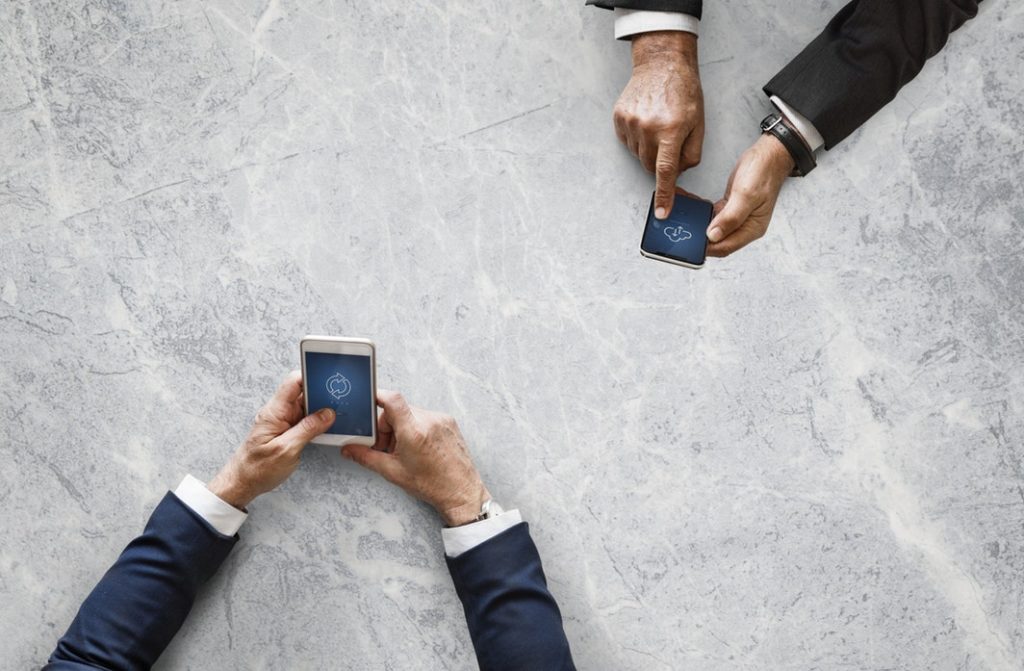Do you ever find yourself forgetting the simplest of things? What were you just talking about? What did you need to get from upstairs? It’s becoming all too common for us to accept our flustered selves as a part of our modern, hectic lifestyles. As a society, we are married to our to our constant connection to technology – for better or worse. But there may be more serious problems to this that we think.
Enormous numbers of Gen Z’s and Millenials are showing signs of short term memory dysfunction as a result of their addiction to technology. As a mother of Millennials, this is something I am becoming increasingly concerned about. I suffered from Baby-Brain, and the occasional Menopausal-Fog. So, what can we do to stop Digital Dementia happening to us?
Digital Dementia was a term first coined by the neuroscientist Manfred Spitzer in his 2012 book. It was a term used to describe how overuse of technology relates to the breakdown of our cognitive abilities. My immediate thought when reading about this topic was to switch off my phone, and take a giant leap away from my computer. But I run a small business, and as a small business owner where my clients expect an almost instantaneous response, this could be extremely damaging to my livelihood and reputation! I know many of you are in the same boat, so I set myself the challenge of finding an appropriate way to prevent the onset of Digital Dementia. Take a look at my top tips below:
Tip Number 1: Use your head.
What’s the capital of of Spain? It is become our instant response to pick up our phones and Google the answer. If we want to prevent Digital Dementia then it’s time we resist this new, natural reflex we’ve developed and start using our brains, or even just asking the person next to us. The next time you can’t immediately remember the answer to something, sit patiently and wait for it to come to you. (Madrid, by the way…)
Tip Number 2: Plan ahead.
As a Business Coach, you should know how highly I recommend the planning process but it can help us out more than we think. If you know you have some work to do on your laptop, or a few emails to be sent, plan for it. Prepare all your resources ahead of time, this will help ensure you know exactly what to do. You can avoid interruptions, and use your time more efficiently. If we plan, and plan well, this should mean we spend less time on our phones or computers and have the option of more time spent interacting with other human beings!
Tip Number 3: Move.
You don’t need me to tell you the importance of exercise, but its benefits are endless. Physical exercise increases blood flow and accelerates the transport of vital nutrients to our brains. Essentially, we need to be doing more to reconstruct or ‘rewire’ our brains new habits. Through exercise, we should find that we have less dependency on technology and more good ol’ brain power.
Tip Number 4: Listen to your body.
Shoulder ache, eye ache, headaches… classic signs that we have been at our computers too for long. If you start noticing any of these symptoms, then give yourself a break. Go for a coffee, catch up with friends, or even stick a wash on, just do something that gets you away from a bright, glowy screen for a while.
The internet is a busy place, and it’s easy to feel overwhelmed (both physically, and mentally!) if we spend too long consuming ourselves with it. Pay attention to your body and the signals it’s giving off. Sometimes the best investment of time for our businesses is to have a little me-time. Don’t forget, you’re your businesses biggest asset- when you’re not on top form, neither is your business.
Tip Number 5: Limit your screen time.
The recommended amount of time for children to be using any type of screen is two hours per day, but as adults it is understandable that there is a necessity for us to be much more digitally-active than this. So, outline a couple of hours each day (maybe in the evenings, after the children are in bed) where you turn your phone, your computer, and your laptop off. Read a book, go for a walk, or simply write out your plan for the next day. Give your eyes and, more importantly, your brain a break. No one expects you to be replying to emails past 9pm. It’s your life- you’re responsible for taking care of yourself.
In an age where we have the answers to everything, and contact to everyone, at our fingertips it’s unlikely that our use of technology is going to slow down on its own. But there’s a growing body of research that shows how detrimental this can be to our long-term wellbeing, so it’s time we started taking note and looking taking steps to rectify these wrongs ourselves!
For more business advice and support head over to my Facebook Group now and join the fun! Alternatively, if you’re looking for some one-to-one advice then sign up for your Free Strategy Session now.
Hugs,
Linda.


